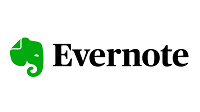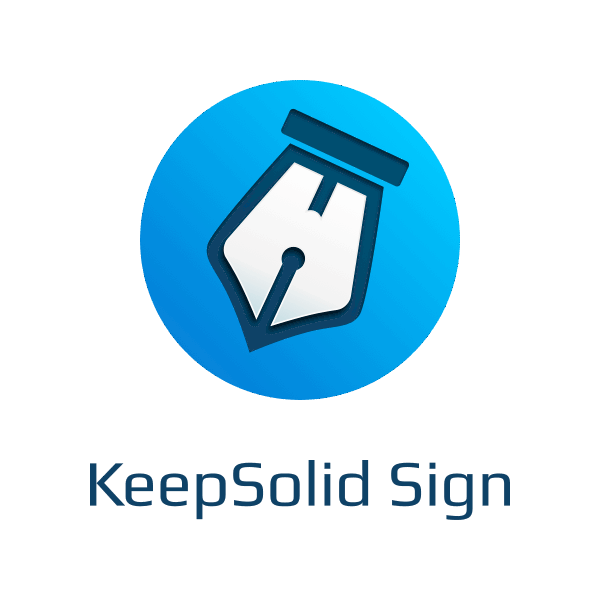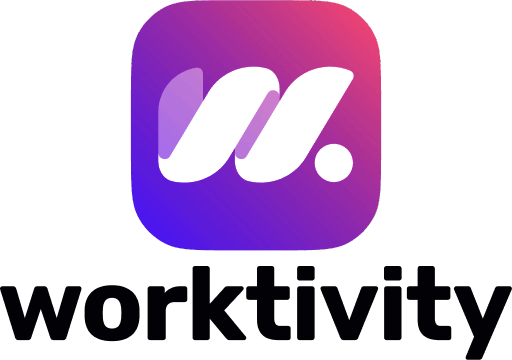Description

Evernote

KeepSolid Sign
Comprehensive Overview: Evernote vs KeepSolid Sign
Certainly! Below is a comprehensive overview of Evernote and KeepSolid Sign, focusing on their primary functions, target markets, market share, user base, and key differentiators.
Evernote
a) Primary Functions and Target Markets
-
Primary Functions: Evernote is a note-taking application designed to help individuals and businesses organize information. Key functions include note creation, organizational tools, task management, and integration with other software. Users can store text, images, audio, and web clips. Its powerful search capabilities and cross-platform availability make it ideal for organizing complex information.
-
Target Markets: Evernote targets a wide range of users from individual consumers, students, and professionals to small and large businesses. It appeals particularly to those needing to manage and recall a significant amount of information, such as researchers or project managers.
b) Market Share and User Base
- As a well-established player in the productivity and note-taking space, Evernote has a significant user base, historically reported to be over 225 million users worldwide. While the exact market share can fluctuate due to competition, Evernote remains a strong contender in digital productivity tools, alongside competitors like Microsoft OneNote, Google Keep, and Apple Notes.
c) Key Differentiating Factors
- Advanced Organizational Tools: Evernote offers sophisticated tagging and notebook systems, allowing users to categorize and quickly find notes.
- Cross-Platform Availability: Its apps run on numerous devices and operating systems, ensuring data is always accessible.
- Feature-Rich Experience: It's known for its extensive features, including PDF annotation, scanning, and business card handling.
- Third-Party Integrations: Evernote integrates with numerous other productivity applications like Slack, Google Drive, and Outlook.
KeepSolid Sign
a) Primary Functions and Target Markets
-
Primary Functions: KeepSolid Sign is an electronic signature software designed for secure and simple signing of digital documents. It allows users to sign documents, send signature requests, and manage signed documents, facilitating legal and business transactions.
-
Target Markets: This product is aimed at businesses and professionals who require secure and legally binding document transactions, including sectors like real estate, legal, healthcare, and finance. It is ideal for teams that need to streamline contract processes and ensure compliance.
b) Market Share and User Base
- In the electronic signature market, KeepSolid Sign competes with major players like DocuSign, Adobe Sign, and HelloSign. While it might not have the same extensive market share as these dominant players, KeepSolid Sign is recognized for its focus on security and cost-efficiency, appealing to smaller businesses looking for a reliable yet affordable e-signature solution.
c) Key Differentiating Factors
- Security Features: KeepSolid Sign prioritizes data protection with features like AES-256 encryption, which is essential for sectors dealing with sensitive information.
- Cost-Effectiveness: It is often highlighted for offering competitive pricing compared to some bigger names, making it attractive to small to medium businesses.
- Offline Access: The ability to work offline and sync when connected makes it flexible for users without constant internet access.
- Intuitive Interface: Its user-friendly design enables quick onboarding and use, minimizing the learning curve for new users.
Comparison
Evernote and KeepSolid Sign cater to different aspects of productivity: note-taking and organizational needs for Evernote, and electronic signing and document management for KeepSolid Sign. Their key functionalities, target markets, and strengths reflect the specific demands of these distinct areas. While Evernote focuses on comprehensive information management, KeepSolid Sign emphasizes secure and efficient document transactions, each serving its niche in the productivity ecosystem.
Contact Info

Year founded :
2008
Not Available
Not Available
United States
Not Available

Year founded :
Not Available
Not Available
Not Available
Not Available
Not Available
Feature Similarity Breakdown: Evernote, KeepSolid Sign
Evernote and KeepSolid Sign are quite different in their primary functions—Evernote is primarily a note-taking application, while KeepSolid Sign is an electronic signature tool. However, both cater to productivity and documentation management, which brings them some overlapping features. Let’s break down their similarities, differences in user interfaces, and unique features:
a) Core Features in Common
-
Cloud Syncing and Accessibility:
- Both Evernote and KeepSolid Sign offer cloud-based synchronization, allowing users to access documents and notes from multiple devices seamlessly.
-
Multi-platform Availability:
- Both applications are available on multiple platforms, including Windows, macOS, iOS, and Android, ensuring broad accessibility and usability across different devices.
-
Collaboration Tools:
- Both services allow for some level of collaboration. Evernote allows sharing of notes and notebooks for collaborative editing, while KeepSolid Sign enables multiple stakeholders to sign documents.
-
Security:
- Both prioritize security, offering encryption to protect user data. Evernote provides options like two-factor authentication, while KeepSolid Sign ensures secure transactions with its robust encryption protocols.
b) User Interface Comparison
-
Evernote:
- Evernote features a clean, intuitive interface optimized for note-taking. It’s based around a sidebar that facilitates easy navigation between Notes, Notebooks, Tags, and Shortcuts. The interface is designed to facilitate quick capture of ideas, with rich formatting options directly accessible.
-
KeepSolid Sign:
- KeepSolid Sign's interface is built around managing documents for signing. It presents users with a dashboard where they can manage workflows, view pending signatures, and organize completed documents. The interface is straightforward, focusing on document management and less on content creation as in Evernote.
c) Unique Features
-
Evernote:
- Web Clipping: This feature allows users to clip entire web pages, articles, or parts of web content directly into Evernote notebooks, which is unmatched by KeepSolid Sign.
- Handwriting Recognition: Allows users to search text within scanned handwritten notes.
- Task Management: Integrated task tracking alongside notes to enhance productivity.
- Extensive Integrations: Evernote can integrate with a wide range of third-party apps such as Google Drive, Slack, Microsoft Teams, and more, extending its functionality.
-
KeepSolid Sign:
- Document Workflow: Designed for managing document signing workflows, with features to set signing order, notifications for signed documents, and auditing trails.
- Templates: Users can create reusable templates for frequently used documents which streamline the signing process.
- In-Person Signing: Allows users to collect signatures in person, suitable for situations requiring immediate signing.
- Enterprise-Level Features: Offers advanced administrative controls suitable for businesses, including role management, team permissions, and centralized billing.
In summary, while both Evernote and KeepSolid Sign prioritize productivity and collaboration, Evernote focuses on content creation and organization, whereas KeepSolid Sign specializes in document processing and electronic signatures. Their interfaces reflect these core purposes, and each offers features uniquely suited to its primary function.
Features

Not Available

Not Available
Best Fit Use Cases: Evernote, KeepSolid Sign
Evernote
a) Best Fit Use Cases:
-
Note-Taking and Organization: Evernote is ideal for businesses or projects that require extensive note-taking, organization, and information storage. This makes it suitable for educational institutions, writers, researchers, and content creators who need to manage large amounts of data and creative ideas.
-
Collaborative Projects: Small to medium-sized creative agencies, marketing teams, or startups benefit from Evernote's collaboration tools. It allows team members to share notes and maintain a collective workspace for brainstorming, planning, and tracking project progress.
-
Personal Productivity: For freelancers, consultants, and small business owners, Evernote provides an organized system to manage tasks, client notes, and personal productivity lists, integrating with other productivity apps to streamline workflows.
d) Industry Verticals and Company Sizes:
- Education: Teachers and students use Evernote to store lecture notes, research materials, and collaborate on assignments.
- Publishing and Media: Journalists and authors utilize Evernote for organizing ideas, drafting articles, and storing reference material.
- Small to Medium Enterprises: SMEs often leverage Evernote's organizational tools for project management and team collaboration, particularly when dealing with creative or knowledge-based work.
KeepSolid Sign
b) Preferred Scenarios:
-
Remote and Hybrid Work Environments: Companies with remote or hybrid work setups prefer KeepSolid Sign for its efficient document signing processes, which help maintain workflow continuity without the need for physical document exchanges.
-
Legal and Compliance-Heavy Industries: KeepSolid Sign is well-suited for industries such as real estate, legal services, finance, and healthcare, where document validity and compliance with digital signatures are crucial due to regulatory requirements.
-
High-Volume Document Processing: Businesses that handle large volumes of contracts, such as real estate agencies, legal firms, and sales teams, benefit greatly from KeepSolid Sign’s ability to streamline document signing processes and manage document lifecycles efficiently.
d) Industry Verticals and Company Sizes:
- Real Estate: Agents and firms use KeepSolid Sign to expedite property transactions and rental agreements by providing a secure and compliant digital signing platform.
- Legal Services: Law firms utilize KeepSolid Sign to manage agreements and contracts, ensuring a secure audit trail and maintaining compliance with industry standards.
- Financial Services: Banks and financial institutions use it for handling customer agreements, loan documents, and other sensitive materials that require rigor in digital signing and record-keeping.
- Healthcare: Providers leverage KeepSolid Sign for managing patient consent forms and policy documents, ensuring compliance with healthcare regulations like HIPAA.
In summary, Evernote is primarily a tool for organization and collaboration, making it suitable for creative, educational, and small business settings. KeepSolid Sign, on the other hand, focuses on secure and compliant document signing, fitting well with industries that require rigorous documentation processes and regulatory adherence.
Pricing

Pricing Not Available

Pricing Not Available
Metrics History
Metrics History
Comparing undefined across companies
Conclusion & Final Verdict: Evernote vs KeepSolid Sign
When comparing Evernote and KeepSolid Sign, it's essential to understand that these two products serve different primary purposes. Evernote is predominantly a note-taking and organization app, while KeepSolid Sign is focused on electronic signature solutions. Despite their different core functionalities, users may find themselves comparing the two for their productivity suite needs. Here's a conclusion considering these tools:
a) Considering all factors, which product offers the best overall value?
Evernote generally offers better overall value for users seeking a comprehensive platform for note-taking, organization, and productivity enhancement. Its versatility and range of features suit individuals and teams looking to manage large amounts of information effectively.
KeepSolid Sign provides value primarily for businesses and individuals with regular document signing needs, offering a reliable electronic signature solution.
b) Pros and Cons
Evernote:
Pros:
- Versatility: Robust range of features for note-taking, with functionalities like text, images, and file attachments.
- Organization: Offers notebooks, tags, and search functions for easy retrieval of information.
- Integrations: Connects with numerous third-party apps, expanding its functionality.
- Cross-platform: Available on various operating systems with seamless sync.
Cons:
- Pricing: Some users find Evernote's premium pricing model expensive compared to competitors.
- Complexity: Its extensive features can be overwhelming for new users or those seeking simpler tools.
KeepSolid Sign:
Pros:
- Specialization: Dedicated to secure electronic signing with features tailored for legal compliance.
- Ease of Use: User-friendly interface designed for quick and efficient document processing.
- Security: Provides high-level encryption and authentication to ensure signatory security.
- Cost-Effectiveness: Offers competitive pricing for businesses needing frequent signature capabilities.
Cons:
- Limited Functionality: Not as multifaceted as Evernote regarding varied productivity needs outside of document signing.
- Niche Use Case: Primarily beneficial for users with a specific focus on document signing.
c) Specific Recommendations
For Users Primarily Needing Organization and Note-Keeping:
- Opt for Evernote if your primary goal is managing information, notes, and tasks. It excels as a comprehensive tool for personal and professional organization.
For Users Focused on Electronic Signatures:
- Choose KeepSolid Sign if your primary need involves secure and efficient electronic signature capabilities. It’s ideal for businesses dealing with frequent document signing that requires reliability and legal compliance.
Mixed Needs:
- If both note-taking and document signing are crucial, consider integrating both tools or evaluate whether another platform might more effectively cover your range of needs.
In conclusion, the decision should be guided by your specific priorities—organization and note-taking versus electronic signatures. Evaluate the needs of your workflow to choose the tool that aligns best with your professional or personal productivity requirements.
Add to compare
Add similar companies



